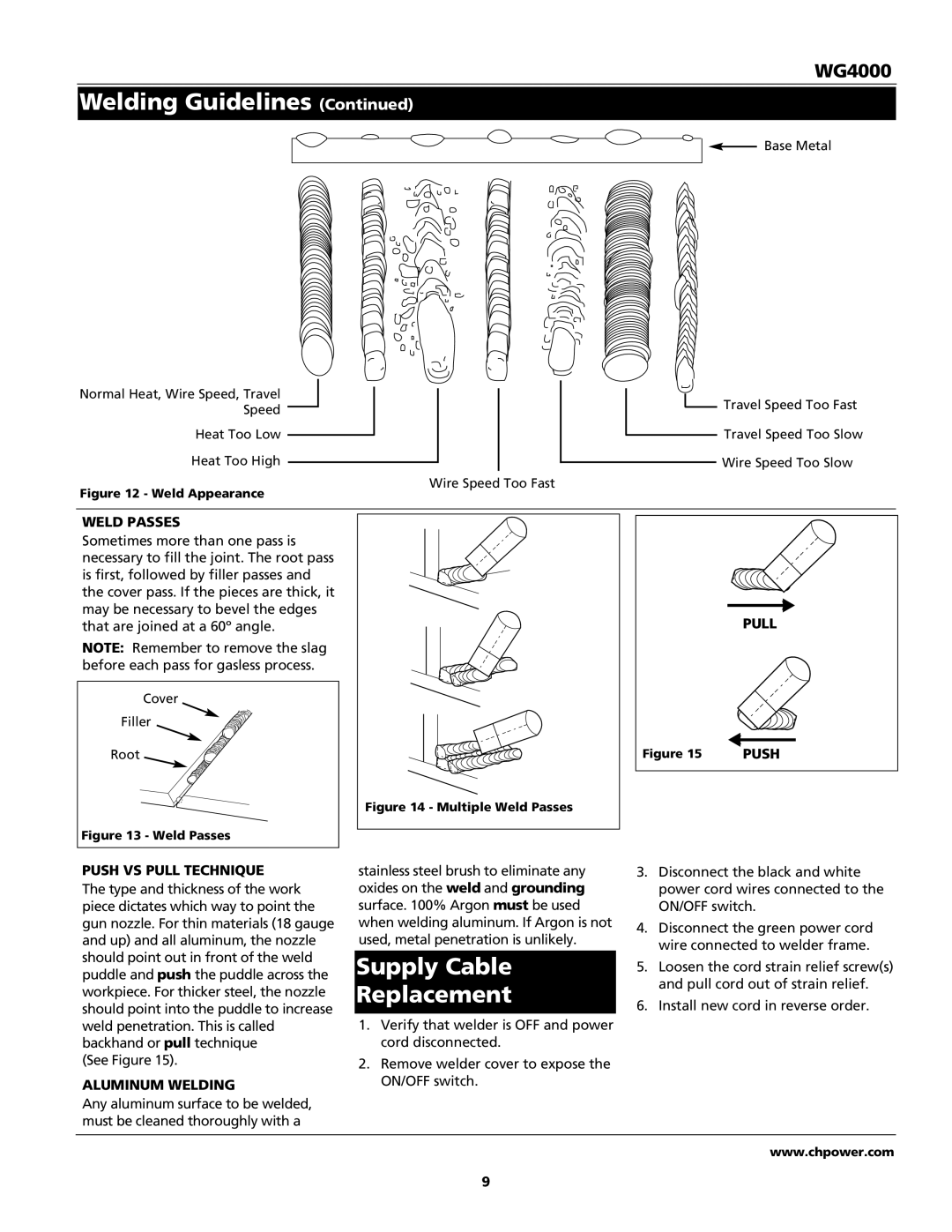
WG4000
Welding Guidelines (Continued)
Normal Heat, Wire Speed, Travel Speed
Heat Too Low
Heat Too High
Figure 12 - Weld Appearance
Base Metal
Travel Speed Too Fast
Travel Speed Too Slow
Wire Speed Too Slow
Wire Speed Too Fast
WELD PASSES
Sometimes more than one pass is necessary to fill the joint. The root pass is first, followed by filler passes and the cover pass. If the pieces are thick, it may be necessary to bevel the edges that are joined at a 60º angle.
NOTE: Remember to remove the slag before each pass for gasless process.
Cover
Filler
Root
PULL
Figure 15 | PUSH |
Figure 14 - Multiple Weld Passes
Figure 13 - Weld Passes
PUSH VS PULL TECHNIQUE
The type and thickness of the work piece dictates which way to point the gun nozzle. For thin materials (18 gauge and up) and all aluminum, the nozzle should point out in front of the weld puddle and push the puddle across the workpiece. For thicker steel, the nozzle should point into the puddle to increase weld penetration. This is called backhand or pull technique
(See Figure 15).
ALUMINUM WELDING
Any aluminum surface to be welded, must be cleaned thoroughly with a
stainless steel brush to eliminate any oxides on the weld and grounding surface. 100% Argon must be used when welding aluminum. If Argon is not used, metal penetration is unlikely.
Supply Cable
Replacement
1.Verify that welder is OFF and power cord disconnected.
2.Remove welder cover to expose the ON/OFF switch.
3.Disconnect the black and white power cord wires connected to the ON/OFF switch.
4.Disconnect the green power cord wire connected to welder frame.
5.Loosen the cord strain relief screw(s) and pull cord out of strain relief.
6.Install new cord in reverse order.
www.chpower.com
9
